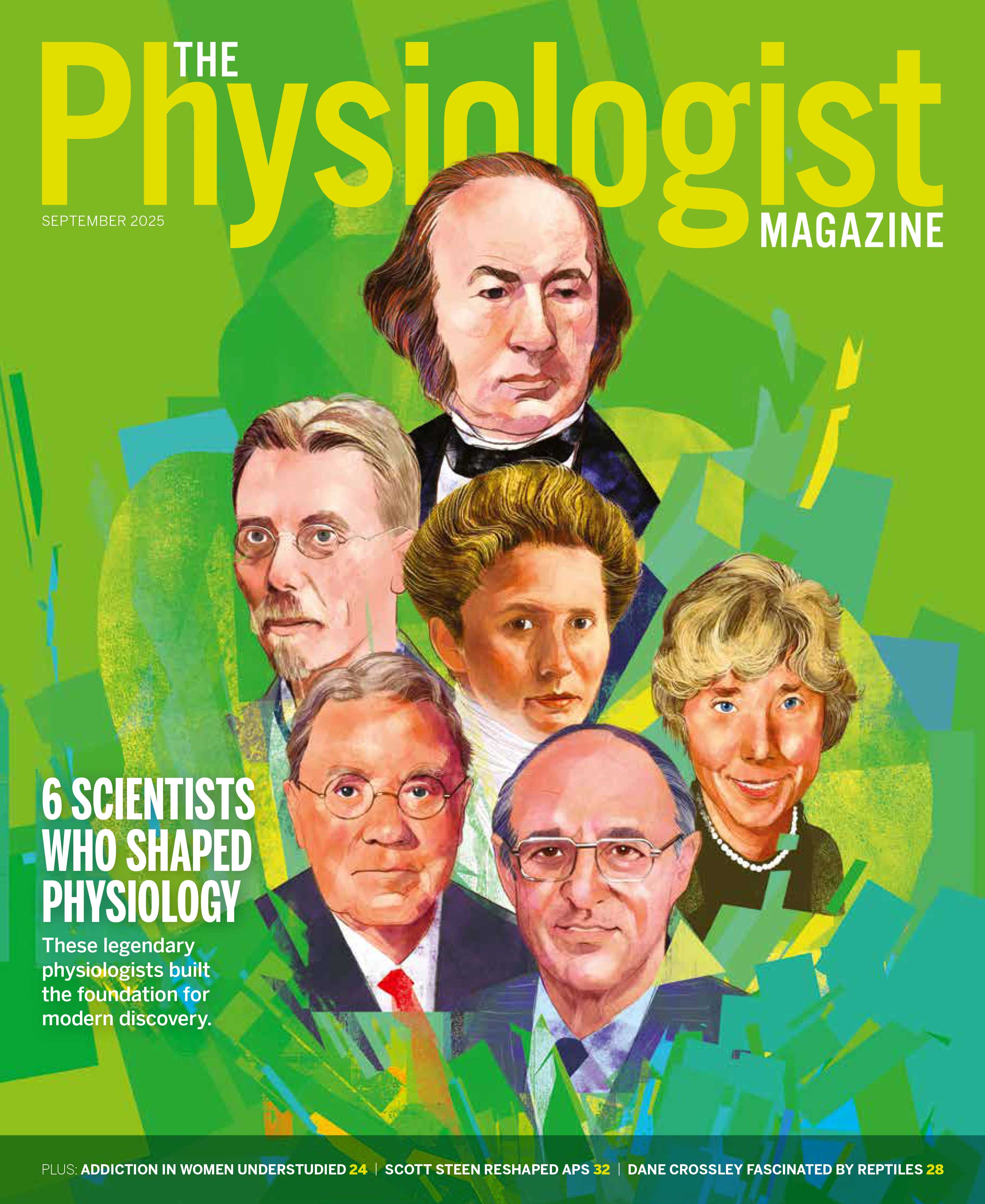The Cult of Overwork Is Holding Us Back
By Mark R. Frey, PhD

A career in physiology is a profession, not just a job. But what does that mean? In the “good old days” it often meant working 60+ hours a week to compete. Some keepers of conventional wisdom apparently still expect this—not long before COVID, I gave a visiting senior colleague a lab tour at 4:30 p.m. on a Friday, when a lot of the group was gone for the day. The visitor voiced his disapproval, saying, “it’s a privilege to have a career in research,” implying that trainees should spend every possible minute in the lab.
Note his use of the word privilege.
Attitudes like this contribute to mental health issues in science and perpetuate structural gatekeeping. Doesn’t the assumption that a scientist is free to work long hours day after day imply that there’s someone else organizing the household, parenting the kids and caring for older relatives? Doesn’t it imply no obligations or interests beyond work? Small wonder that the traditional stereotype of a scientist is a white man of reasonable means, an aloof elite disconnected from the “real world” and its problems. The notion that overwork is required for success is a barrier to participation by many talented would-be physiologists.
How do we address an entrenched system of overwork and exclusion? For starters, we learn from junior investigators! In the past decade, young physiologists have pushed back against dated ideas of what a scientist looks like, how they work and how they engage with society. As we all live through a pandemic and experience public outrage over institutionalized racism and sexism, young investigators are looking for more balance in their lives. They are questioning the virtue of a siloed and dispassionate academe. Don’t believe me? Go spend a few minutes on #sciencetwitter and then come on back.
“How do we address an entrenched system of overwork and exclusion? For starters, we learn from junior investigators!”
This isn’t “quiet quitting.” Today’s budding physiologists are no less passionate than prior cohorts about advancing our understanding of how organisms work. They just want to do it in a sane, supportive work environment. I, for one, agree. There’s ample evidence that a shorter, more flexible work week doesn’t necessarily mean less productivity, but it does increase opportunity. The cult of overwork is a structural barrier that diminishes the overall scientific enterprise through exclusion.
We should have frank conversations at all levels—including institutions, societies and funding agencies—about incentive structures that promote healthier work habits. This includes hiring and promotion decisions, salary equity, speaking opportunities, funding distribution and more.
In the current landscape, if a talented trainee doesn’t have the means or support system to spend most waking hours working, or to move thousands of miles for work, we might lose them. If a brilliant investigator takes time away to raise (science-savvy!) children, or promote educational diversity, or fight for justice in their community, their career may stall for lack of funding or promotion.
Leaving potential discoveries on the table because our system failed the scientists who would have made them impoverishes us all. We must do better.
Mark R. Frey, PhD (@SqueakyAnimal on Twitter), is associate professor of pediatrics at the University of Southern California and Children’s Hospital Los Angeles. He is the editor-in-chief of the American Journal of Physiology: Gastrointestinal and Liver Physiology and the keyboard player for GI Distress, a band of intestinal physiologists.
This article was originally published in the November 2022 issue of The Physiologist Magazine.
The Physiologist Magazine
Read the Latest Issue
Don’t miss out on the latest topics in science and research.
Contact Us
For questions, comments or to share your story ideas, email us or call 301.634.7314.


